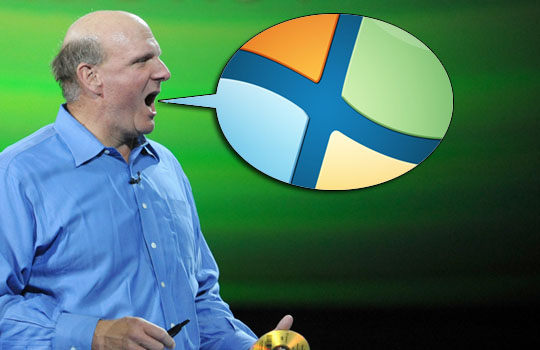
Asking Steve Ballmer how he feels about being in the “post-PC era” and he’ll give you a sorta-kinda answer: “We are in the Windows era — we were, we are, and we always will be.”
At a company shareholder’s meeting this morning in Seattle, Ballmer fielded questions of various kinds. Pressure on Microsoft to enter the tablet market in earnest is mounting, and it should come as no surprise to know that people are asking about what many call the “post-PC era”, so questions about tablets and mobile devices are going to be a sure thing. Ballmer went on to add, “through the power of Windows, the PC will be a tablet machine, will be a reading machine, will be a note-taking machine.”
If Ballmer seems a bit touchy about the subject of what happens after the PC, it’s for good reason. The tablet and phone era of computing is well underway with Apple leading the charge for the last five years, and Microsoft has yet to produce anything in those spaces that mirrors the insane success Windows OS has enjoyed on PCs for years. The Windows 7 Phone has been stumbling and unable to really impact the market the way the iPhone or Android have, and Microsoft has not yet produced their tablet-specific software technology.
Business Insider comments on how one shareholder asked, “Why can’t I buy a Windows tablet today?” and Ballmer pointed him to the Samsung tablets. In doing so, he only sort-of answered the question: Those tablets are running jury-rigged versions of Windows 7, a desktop OS, and not something made specifically for the mobile space and the difference is palpable.
That’s the big advantage that Apple has with the iPad — it was built with touch in mind, and has more than 100,000 touch-enabled apps available for it. Microsoft is still about a year away from matching that with Windows 8, and even then it will take app makers (including Microsoft) some time to catch up with the apps.
Windows 8 and Metro, its tablet-geared interface, are actually looking pretty slick (if the pre-release hype is to be believed), but one can’t wait too long to catch up to the competition in a fast-moving market. Before long, there’s a point where your catch-up point is no longer where the other guys are, but where they were.
Source: Business Insider






